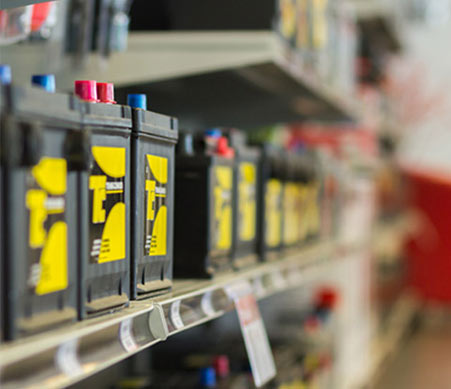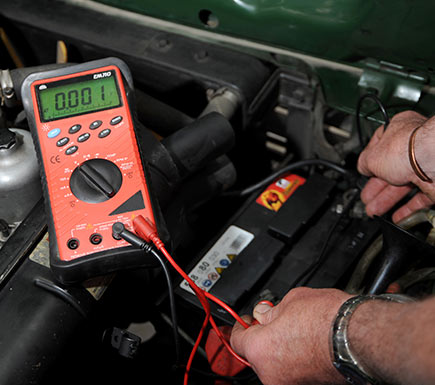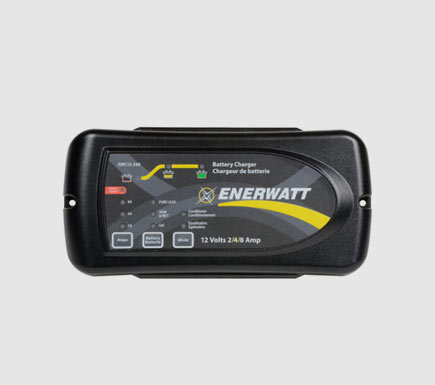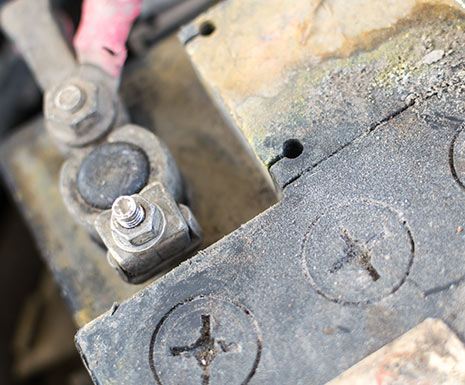At Batteries Expert, our motto is "A fully charged battery is a healthy battery!"
A standard lead acid battery (or accumulator) is actually just casing in which electrical energy is stored. Batteries are composed of negative and positive plates submerged in an electrolyte pool (a solution of water and sulfuric acid), which creates a chemical reaction that generates tension (voltage).
When a battery is discharged, its acid level and tension decrease. When the chemical reaction is weak, the energy is low.

























